Imagine you had to fight someone two to three times as big as you. Preposterous and highly unlikely, I know… but who do you think would win? This is what crows commonly encounter.
Let’s take a look at the sizes of both the Common Raven and the American Crow:
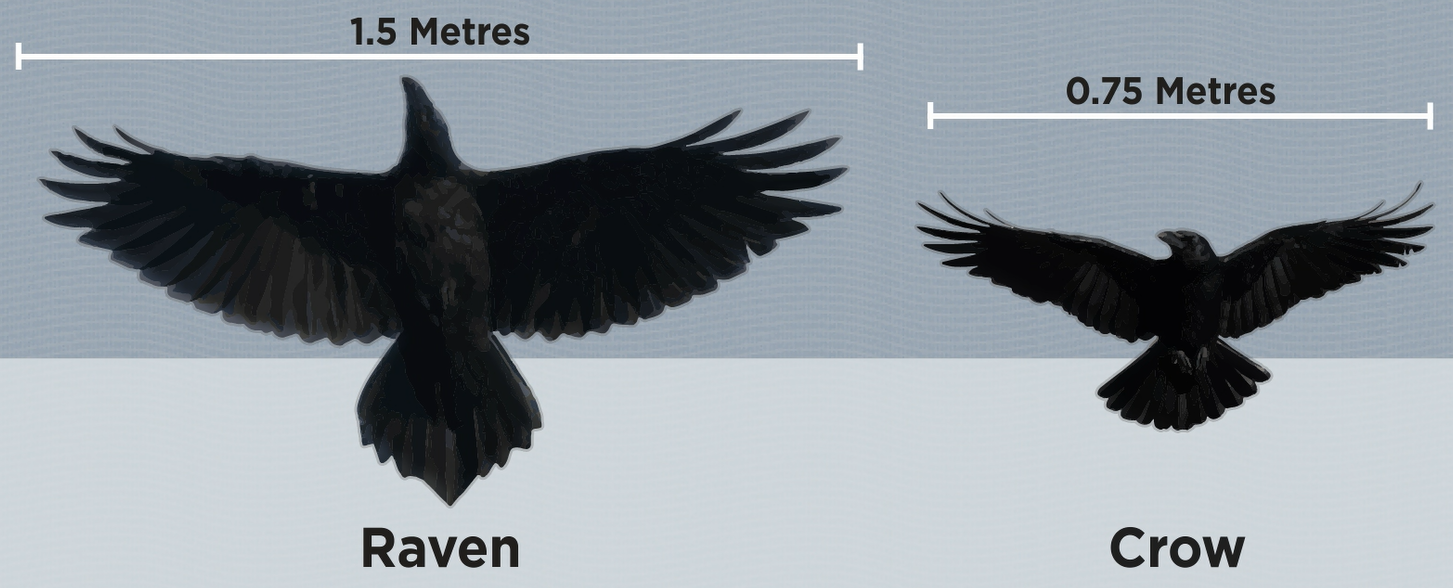
Image created by: Hinterland Who’s Who
After seeing this picture comparing the sizes of both crows and ravens, who do you think would win: crows or ravens? By sheer size, you may have said ravens… but in fact, in a recent study about crows and ravens, it was actually found that crows, the underdog, attacked ravens. Let’s find out why!
Dr. Benjamin Freeman, a biologist from the University of British Columbia, and his colleague, Eliot Miller, from Cornell University, recently studied and wrote a paper on the aggression between crows and ravens. To carry out their study, they used more than 2,000 observations from a citizen science website called eBird to collect data of crows and ravens across North America.
What is Citizen Science?
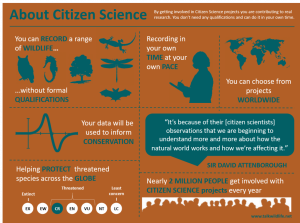
Infographic created by talk:Wildlife
Citizen science is described as the public participation in scientific research. This is a place where members of the public can share and contribute data to scientific research. For example, the citizen science site, eBird used by Dr. Freeman, is a place for anyone from anywhere to share their observations of birds. eBird currently has over 500 million bird observations worldwide, and an app that is available in 27 languages!
With that being said, you can also be a citizen scientist! Want to learn more? Listen to our interview with Dr. Benjamin Freeman about his view on citizen science:
Enough about citizen science, let’s talk more about Dr. Freeman and Miller’s studies on why crows attack ravens.
What did Dr. Freeman and Miller find in their studies?
Dr. Freeman and Miller found three main results:
1. Crows often attack ravens
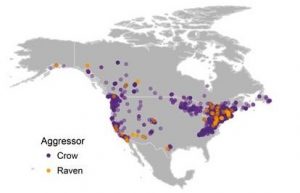
Image created by: Dr. Benjamin Freeman
It was found that crows attack ravens almost 97% of the time. The picture above shows that crows (purple dots) initiated 1,964 of the 2,014 attacks in North America.
2. Attacks were more common during the crows’ nesting season
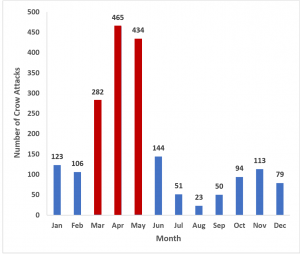
Image created by Vanessa Lee
Looking at the red bars above, crow attacks peaked from March to May, the same time as the crows’ nesting season. Dr. Freeman and Miller believe that this may be due to the crows’ instinct to protect their nestlings from ravens.
3. Group vs one-on-one attacks
It was found that attacks were primarily done in groups for crows. Crows are very social creatures, and they were able to dominate through mobbing, a technique that capitalizes on the strength in numbers.
What is mobbing?
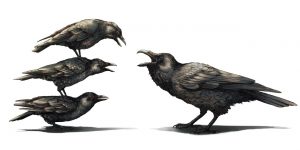
Illustration by Cornell Lab Bartels Science Illustrator Phillip Krzeminski
Mobbing is when smaller birds join forces to fight larger birds. Group attacks were seen in 81% of the attacks in Dr. Freeman’s studies, rather than one-on-one attacks.
Here’s a video we made to summarize why crows attack ravens (and you get to hear from Dr. Freeman himself!):
Let me ask you again, imagine you had to fight someone two to three times as big as you. Preposterous and highly unlikely, I know… but who do you think would win?
Now, you could say yourself… if you were to compare yourself to a crow!
– Written by: Kuljit Grewal, Han Jiang, Kaitlyn Le, and Vanessa Lee
